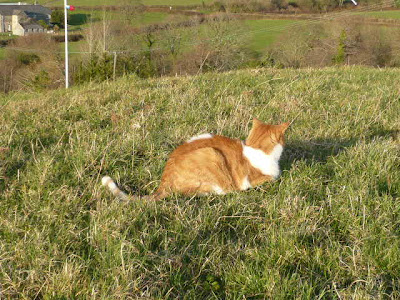
Currently the
dingo is often a wild dog of Southeast Asia and today Commonwealth of Australia. It is ordinarily known as the Australian wild dog. The
dingo is known to have originated in Asia and brought to Commonwealth of Australia by Austronesian mongers some 3,000 years ago. Him or her throve upon launching, and chop chop disseminate everywhere on Australia, quite possibly with human assistance. Within a short time period the
dingo had occupied the entire continent and became a dominant predator, likely contributing to the extinction of marsupial carnivores such as the Thylacine. In recent generations, the
dingo has become seen as a pest species, and many measures, including an extensive fence, have been made to stem its encroachment on human property welfare. Also, because of its inbreeding with dogs introduced by European settlers, the
dingo gene pool is also considered to be increasingly "polluted". Thus, its present day status is considered "Vulnerable", with some believing its extinction to be inevitable. Name :
Dingo. Scientific Name : Canis lupus
dingo. Status : Vulnerable. Kingdom : Animalia. Phylum : Chordata. Class : Mammalia. Order : Carnivora. Genus : Canis. Species : C. lupus. Subspecies : C. l.
dingo.













 Flynn is going in the tractor shed. I better see what he's up to.
Flynn is going in the tractor shed. I better see what he's up to. Where did he go? Are you in the trailer Flynn?
Where did he go? Are you in the trailer Flynn? Nope, not here.
Nope, not here. Oh, this is a nice sun puddle though.
Oh, this is a nice sun puddle though. Mmm very nice.
Mmm very nice. Spose I should look for Flynn.
Spose I should look for Flynn. Nope, this sun puddle has got my name on it.
Nope, this sun puddle has got my name on it. I hope he's not lost. I can't see him.
I hope he's not lost. I can't see him. He 's disappeared!
He 's disappeared! I better go home and see if he's gone back there.
I better go home and see if he's gone back there. Ah, there he is, looking for fevvers in the hedge.
Ah, there he is, looking for fevvers in the hedge.











































